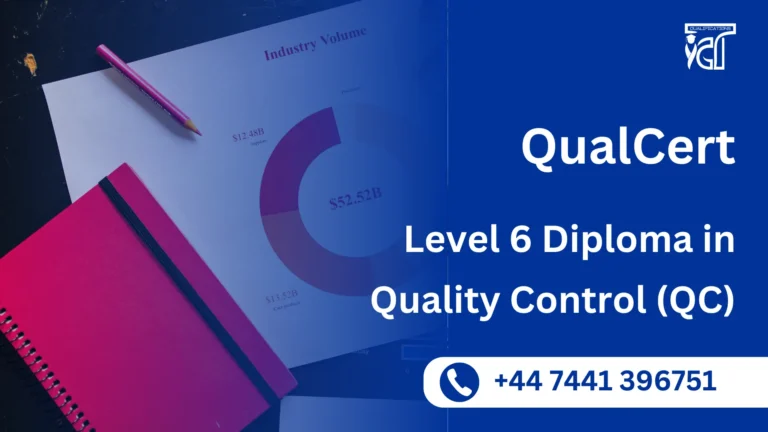The healthcare and social care industry is rapidly evolving, with increasing demand for skilled professionals who can efficiently manage and lead within the sector. The OTHM Level 4 Diploma in Health and Social Care Management is an excellent choice for individuals looking to build a solid foundation in this field.
This Ofqual-regulated qualification is designed to equip learners with the necessary knowledge and skills to excel in health and social care management roles.
Investing in the OTHM Level 4 Diploma in Health and Social Care Management is a strategic step toward a rewarding career in the healthcare industry. With its Ofqual regulation, flexible assignment-based approach, and strong career prospects, this qualification is an excellent choice for anyone looking to make a meaningful impact in health and social care management.
OTHM Level 4 Diploma in Health and Social Care Management
The OTHM Level 4 Diploma in Health and Social Care Management comprises six mandatory units, totaling 120 credits. The qualification requires 1,200 hours of Total Qualification Time (TQT), with a recommended minimum of 600 Guided Learning Hours (GLH).
Level 4 Mandatory units:
| Sr# | Unit Title | Credits | GLH |
|---|---|---|---|
| 1 | Promoting Equality, Diversity and Inclusion in Health and Social Care | 20 | 100 |
| 2 | Professional Development and Academic Writing Skills | 20 | 100 |
| 3 | Communication in the Caring Professions | 20 | 100 |
| 4 | Principles of Health and Safety for Health Professions | 20 | 100 |
| 5 | Assessment Processes in Health and Social Care Settings | 20 | 100 |
| 6 | Resource Management in Health and Social Care | 20 | 100 |
GLH (Guided Learning Hours) and TQT (Total Qualification Time) are terms commonly used in vocational qualifications to help define the amount of time a learner is expected to spend on heir studies.
1. GLH (Guided Learning Hours)
GLH refers to the number of hours a learner spends being directly taught, supervised, or supported during their course. This includes the time spent in activities such as:
- Classroom instruction
- Practical workshops
- One-on-one tutoring or mentoring sessions
- Online learning sessions with tutor support
In other words, GLH represents the time that learners are actively engaged with their instructors or learning activities.
2. TQT (Total Qualification Time)
TQT represents the total amount of time a learner is expected to invest in completing a qualification, including:
- GLH (Guided Learning Hours): Time spent on direct learning, as explained above.
- Self-Directed Learning: This includes time spent on independent study, research, assignment completion, preparation for exams, and any other work the learner does outside of direct teaching hours.
TQT is a broader measure that includes all the time required to achieve the qualification. It helps learners and employers understand the overall commitment required for the qualification.
Key Differences Between GLH and TQT:
- GLH focuses on direct learning with guidance or supervision.
- TQT includes GLH as well as independent study time and other learning-related activities.
Example:
If a qualification has a TQT of 600 hours and a GLH of 250 hours, it means the learner should spend 250 hours in direct learning (classroom, online, or tutor-led sessions) and 350 hours on independent study or research.
Learning Outcomes of OTHM Level 4 Diploma in Health and Social Care Management
Promoting Equality, Diversity and Inclusion in Health and Social Care
- Understand equality, diversity, inclusion and human rights within the health and social care workplace.
- Understand the development of systems that promote diversity, equality and inclusion.
- Be able to promote equality, diversity and inclusion.
- Know how to manage risk and balance rights with duty of care
Professional Development and Academic Writing Skills
- Understand the principles of professional development.
- Be able to develop goals and targets for their own professional development.
- Be able to prepare a professional development plan.
- Be able to use models of reflective practice to evaluate own development.
- Be able to apply appropriate academic conventions in written communication.
Communication in the Caring Professions
- Know about the range of communication requirements in the workplace.
- Be able to use communication systems and practices in the workplace.
- Be able to use communication systems to facilitate partnership working
- Know how to use systems for information management.
Principles of Health and Safety for Health Professions
- Know about the current legislative framework for health and safety.
- Understand the importance of compliance in relation to health and safety.
- Understand risk assessment processes related to health or social care.
- Be able to review health and safety practices, policies and procedures.
Assessment Processes in Health and Social Care Settings
- Know about approaches used in the assessment process for care provision.
- Know how to lead assessments for care provision.
- Know how to manage the outcomes of care assessments.
- Be able to advise others about the role of assessment.
Resource Management in Health and Social Care
- Know about the purpose and objectives of human resource management.
- Understand key aspects of managing others in the workplace.
- Understand the regulation and inspection of health and social care services.
- Understand the management of financial resources.
The Course Benefits of the OTHM Level 4 Diploma in Health and Social Care Management are as :
1. Industry-Recognized Qualification
Being an Ofqual-regulated qualification, this diploma is widely recognized by employers and institutions, enhancing your credibility in the health and social care sector.
2. Flexible, Assignment-Based Learning
The course is entirely assignment-based, eliminating the stress of exams and allowing learners to progress at their own pace while developing practical skills.
3. Career Advancement Opportunities
Successful completion of this diploma opens doors to various roles, including healthcare administrator, care home manager, and social care coordinator, among others.
4. Pathway to Higher Education
Learners can seamlessly progress to the OTHM Level 5 Diploma in Health and Social Care Management or equivalent qualifications, facilitating further academic and professional growth.
5. Practical Skill Development
The course equips learners with essential skills in leadership, management, communication, and policy implementation, ensuring they are well-prepared for real-world healthcare settings.
6. Increased Employability
With a strong foundation in health and social care management, graduates are better positioned for job opportunities and promotions within the healthcare industry.
The OTHM Level 4 Diploma in Health and Social Care Management is designed for individuals who are passionate about making a difference in the healthcare sector. This qualification is ideal for:
- Aspiring Healthcare Professionals – Individuals looking to start a career in health and social care management.
- Current Healthcare Workers – Professionals seeking career progression into managerial or leadership roles.
- Career Changers – Those transitioning from other sectors into the healthcare industry.
- Students Seeking Higher Education – Learners aiming to progress to advanced qualifications, such as the OTHM Level 5 Diploma in Health and Social Care Management.
- Entrepreneurs in Healthcare – Individuals looking to establish or manage healthcare businesses, such as care homes or community care services.
This diploma provides a strong foundation in healthcare management, equipping learners with the necessary skills to thrive in the evolving health and social care sector.
Entry Requirements
Register Now
Qualification Process
Qualification Process OTHM Level 4 Diploma in Health and Social Care Management
- Self-Assessment:
Begin by evaluating your eligibility to ensure you meet the qualification requirements, including work experience, knowledge, and language proficiency. - Registration:
Complete your registration by submitting the required documents, including a scanned copy of a valid ID, and paying the registration fee. - Induction:
An assessor will conduct an induction to confirm your eligibility for the course and explain the evidence requirements. If you do not meet the criteria, your registration will be canceled, and the fee will be refunded. - Assignments & Evidence Submission:
Provide all assignments and the necessary evidence based on the assessment criteria outlined in the course. If you are unsure of the required evidence, consult with the assessor for guidance on the type and nature of evidence needed. - Feedback and Revision:
The assessor will review your submitted evidence and provide feedback. Evidence that meets the criteria will be marked as “Criteria Met,” while any gaps will be identified. You will be asked to revise and resubmit if needed. - Competence Evidence:
Submit final evidence demonstrating that all learning outcomes have been met. This evidence will be marked as “Criteria Met” by the assessor once it is satisfactory. - Internal Quality Assurance (IQA):
The Internal Quality Assurance Verifier (IQA) will review your evidence to ensure consistency, quality, and compliance with standards. - External Verification:
The IQA will submit your portfolio to OTHM External Quality Assurance Versifier (EQA) for final confirmation. The EQA may contact you directly to verify the authenticity of your evidence. - Certification:
Upon successful completion of all checks, OTHM will issue your official certificate, confirming that you have attained the OTHM Level 4 Diploma in Health and Social Care Management







